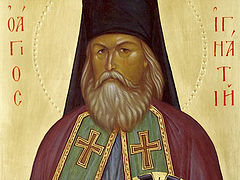Cairo, August 2, 2024
 The Holy Spirit coming from both the Father and the Son, detail of the Boulbon Altarpiece, c. 1450. Originally from the high altar of the Chapelle Saint-Marcellin, Boulbon, France, now in the Louvre, Paris. Photo: Wikipedia
The Holy Spirit coming from both the Father and the Son, detail of the Boulbon Altarpiece, c. 1450. Originally from the high altar of the Chapelle Saint-Marcellin, Boulbon, France, now in the Louvre, Paris. Photo: Wikipedia
The International Joint Commission on the Theological Dialogue between the Orthodox Church and the Lutheran World Federation, which met in Cairo in late May, issued a resulting statement on the Filioque this week.
The Orthodox delegation included representatives of 10 autocephalous Local Churches. The Lutheran World Federation consists of 150 member churches in 99 countries.
The statement begins: “We both affirm the full divinity and personhood of the Holy Spirit, which was expressed in different ways in the eastern and the western traditions.” It acknowledges that the Filioque was initially inserted in the Creed in an attempt to combat Arianism in the West, though the East has always protested the insertion. “As part of the Latin tradition, the reformers inherited the Creed with the Filioque and did not consider it problematic.”
The heart of the Joint Commission’s statement is the suggestion to remove the Filioque from the Creed:
Valuing this old and most venerable ecumenical Christian text, we suggest that the translation of the Greek original (without the Filioque) be used in the hope that this will contribute to the healing of age-old divisions between our communities and enable us to confess together the faith of the Ecumenical Councils of Nicaea (325) and Constantinople (381).
“Renewed focus on the original wording of the Nicene-Constantinopolitan Creed may encourage renewed theological reflection on the Trinity and the role of the Holy Spirit.”
Both sides affirm the doctrine of the Monarchy of the Father—that the Person of the Father is the “cause (αἴτiος) of the generation of the Son and of the procession of the Spirit.”
Noting that the Orthodox conceive of the Spirit proceeding through the Son, as expressed by Sts. Maximus the Confessors, John of Damascus, Tarasios of Constantinople, Gregory Palamas, and Patriarch Gregory II of Constantinople (Gregory of Cyprus), the Commission hopes that this formulation “might facilitate our common effort to reach further agreement regarding the procession of the Holy Spirit.”
***
The Orthodox Church was represented at the Cairo session by: Metropolitan Kirillos of Krini and Deacon Ecumenius Amanitidis (Constantinople), Metropolitan Petros of Axum (Alexandria), Archimandrite Philip Hall (Antioch), Dr. Rade Kisić (Serbia), Protopresbyter Dr. Georgios Zviadadze (Georgia), Metropolitan Isaiah of Tamasos and Oreini and Protopresbyter Stefanos Chrysanthos (Cyprus), Metropolitan Gregorios of Peristeri and Protopresbyter Dr. Dimitrios Bathrellos (Greece), Jerzy Betlejko (Poland), Dr. Nathan Hoppe (Albania), and Ambassador Dr. Václav Ježek (Church of Czechia and Slovakia).
Follow OrthoChristian on Twitter, Vkontakte, Telegram, WhatsApp, MeWe, and Gab!



